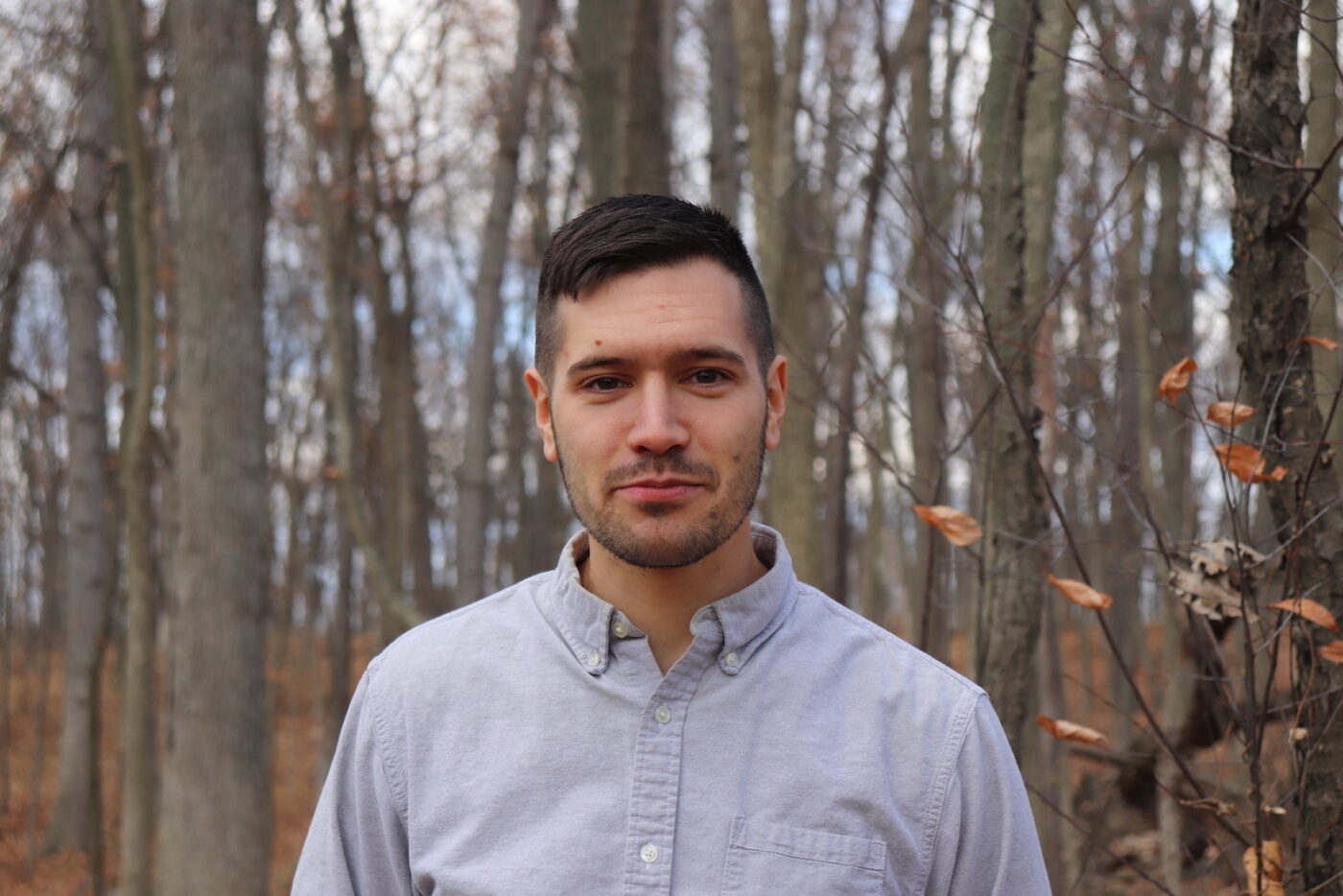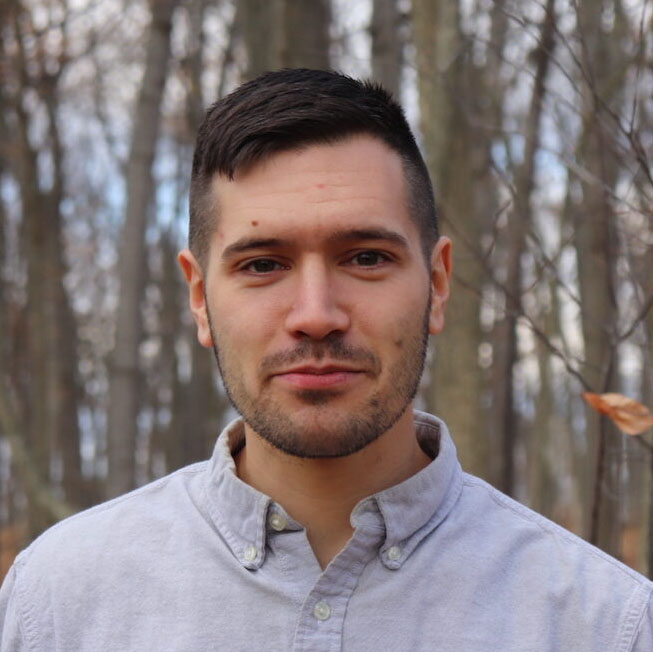Summer 2024
3
Routine, Rhythm, & Patience
Elissa Favero, Contributing Writer (Class of 2024)
Routine, Rhythm, & Patience

Elissa Favero
Contributing Writer
Class of 2024
We officially welcome faculty member Aram Mrjoian to RWW at the residency this July. Aram joins the faculty at RWW as an experienced writer and editor with work appearing in publications such as The Guardian, Literary Hub, Catapult, and more.
Aram and I conducted our conversation over email, and I’m so glad to share it with you below.
***
Elissa Favero: In addition to teaching at the University of Michigan, you've taught undergraduate writing courses in both fiction and nonfiction at PLU as a visiting professor. And you've taught RWW Flash Classes on Zoom these last couple years as well. What's drawn you to this new role as MFA faculty at RWW, and what are you particularly eager to bring to the RWW community?
Aram Mrjoian: There are many reasons I’m excited to join the RWW community, but having the opportunity to work closely with graduate students and the low-residency model are two big draws for me. I did my MFA at Northwestern part-time, taking classes and completing coursework on nights and weekends while working a full-time job in the university’s marketing department, and I think there’s something really special about how students learn to value their time in models alternative to full-time graduate school. When I quit my job and moved from Chicago to Florida to pursue my PhD, my sense of urgency and discipline slackened in some ways, not because I suddenly had more time, but because I was managing my time differently. I lost some of the demands that forced me into a routine and rhythm. My relationship to my work was more toxic because I felt like I had to publish well to get a job on the other side of the program, whereas when I was balancing school and my day job every moment of class was cherished and carved out, if that makes sense. I guess what I mean is I know how much the RWW community values the compressed time and space we have together, and how busy students are outside of the program. I’m really eager to be a part of that process and to build close relationships with students and faculty over multiple years.
My hope is my wide-ranging publishing background and approach to artistic decision-making will bring something valuable to the RWW community. I really want to give everything I can to those around me. I can’t wait to be part of it.

EF: Your education, teaching, and work with literary journals have taken you all over the United States, from Michigan to Denver to the Chicago area to Florida to Tacoma. You're also the editor of the 2023 anthology We Are All Armenian: Voices from the Diaspora. How has place shaped your identity as a writer? Do you connect your relationships to place to your literary interest in spatialization?
AM: This might sound strange, but I never really feel fully at home anywhere, and I try to get at that in my fiction and nonfiction. In that regard, for me, place is an important means of entering characters. Place also offers an entry point to considering larger social, cultural, and political questions. Where something is set can tell a reader a lot right away and can be a way to build tension, conflict, plot, etc. I tend to write with images in mind—I like to clearly see what’s happening—so traveling and living in different parts of the country has helped me think through what really matters to me on the page. I don’t really buy the idea that any one book or canon can define a city or region, but I do believe we can learn a lot from setting details and that it’s worth considering the specifics of where the action occurs. This is all to say I like helping students think through how their work moves concretely through space and time.
EF: I'm really looking forward to the grad session you’ll co-teach with Scott Nadelson at the residency this summer on the editor-writer relationship. I notice that in your teaching statement you also speak to writers negotiating their intentions with readers, editors, and critics. I'm also thinking of your new role as the Editor-in-Chief of The Rumpus. (Big congratulations, by the way!) How do you negotiate wearing these different professional hats: writer, editor, critic? Is an awareness of a larger literary ecosystem something you think is important for students studying writing to be aware of as well?
AM: I try not to offer too many definitive statements about how students find their way in the literary world, but what I will say is that awareness of and curiosity about the larger literary ecosystem are probably the main reason I’ve had any outward-facing success as a writer. In the earliest days of my MFA, I was truly hopeless, writing stuff that was all over the place and lacking decisiveness. I didn’t have a clue what anyone was talking about in workshop. I sincerely felt like I was wasting everyone’s time. Wearing different hats came out of necessity, because that was how I refined my craft and style. I learned to be a writer by reading submissions, interviewing authors, writing reviews, editing stories, and soaking up all the information I could. That might not be necessary for everyone, but it was very much necessary for me.
My interest in these areas evolved in rewarding and unexpected ways. I realized not only how much I enjoyed being an editor, but also that I could make extra income doing it. Writing reviews and interviews resulted in me receiving more invitations to sit on panels, lead workshops, and connect with other writers. I kind of had to build myself up as a writer from scratch and that never would have happened without a willingness to balance different roles and learning experiences. It honestly takes a lot of time and organization, but I doubt I would have gotten this far without investing myself in a variety of projects and roles.
“I kind of had to build myself up as a writer from scratch and that never would have happened without a willingness to balance different roles and learning experiences.”
EF: Can you tell us a little bit about your forthcoming novel, Waterline, and the process that went into writing it and finding a home for it at Harper Via?
AM: Of course! The tagline is “a close-knit Armenian American family grapples with the aftermath of losing one of their own,” but for me writing it was also a chance to consider contemporary themes around Armenian American identity and a chance to compose an extended work that was not centered on the Armenian Genocide. It’s different—I think anyway—from a lot of my other fiction in that the writing is moody and spare in ways most of my short stories are not. The novel I’m working on now goes in the complete opposite direction.
Waterline is my dissertation novel, so I worked on a draft for most of my three years at Florida State University. After that, I revised again in the following year while I was visiting faculty at PLU. I had a tremendous amount of help from friends and mentors along the way. It took me a long time to find an agent, and once I did, we edited the manuscript together before we went out on submission. The whole thing, from the initial idea to the novel it is today, probably took about six years. It will be closer to seven years when it actually hits shelves.
EF: And finally, I know from your 2022 essay for Runner's World, “There Is a Perfect Mile-Long Song and I’ve Been Chasing It for 15 Years,” that running has long been part of your life. Do you see running as being in conversation with your writerly life? Or something entirely separate?
AM: To an extent, everything I do is in conversation with my writing life, but honestly I’m not sure that running is integrally connected, in the sense that I would likely continue pastimes like running, hiking, playing basketball, and other exercise routines regardless of if I was a writer or pursuing any other career path. I consider them two things I do independently because of who I am, even if they influence one another. I tend to solve a lot of narrative problems while I’m on long runs, which is pretty neat. I guess both activities allow me to clear my mind for a while.
If there is a comparison I can make, it’s that I’m somewhat inconsistent in both my running and writing. They are passions for me, but I don’t have daily routines around them unless I am training for something. I’m a big fan of breaks and life balance. If I’m not training for a marathon, there are weeks where I might only run once or twice. I don’t consider myself a true runner the way some folks are. Similarly, sometimes I’ll spend two weeks revising a story for several hours a day and then not write at all for a month. At one point, I made a pledge to a writer friend that I would pay him $5 for every weekday I did not get at least 500 words written of Waterline. It was the only way I really pushed out a first draft.
I am drawn to both of these activities because they require some effort and endurance from me, but I am not overly rigorous when approaching either one. I’ve found that patience is what has allowed me to keep going and avoid burnout.
EF: Thank you, Aram, and welcome to RWW!
Aram Mrjoian is the editor-in-chief of The Rumpus and a 2022 Creative Armenia-AGBU Fellow. His debut novel, Waterline, is forthcoming with Harper Via in 2025. Aram has previously worked as an editor at the Chicago Review of Books, the Southeast Review, and TriQuarterly. He is the editor of the anthology We Are All Armenian: Voices from the Diaspora published by the University of Texas Press (March 2023). His writing has appeared in The Guardian, Runner’s World, Literary Hub, Catapult, West Branch, Electric Literature, Gulf Coast, Boulevard, Joyland, Longreads, and many other publications.

